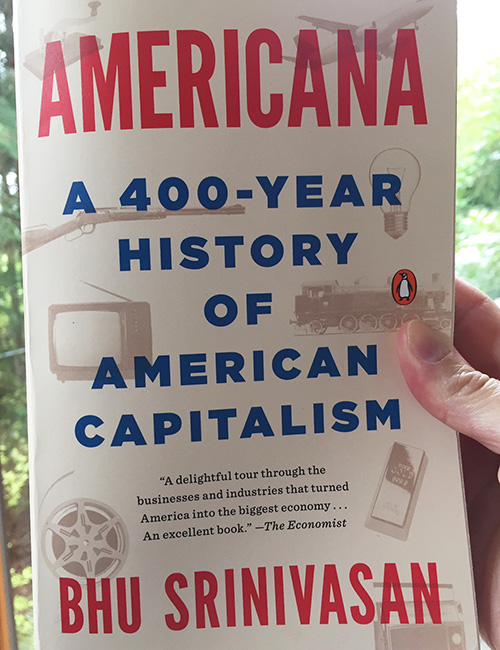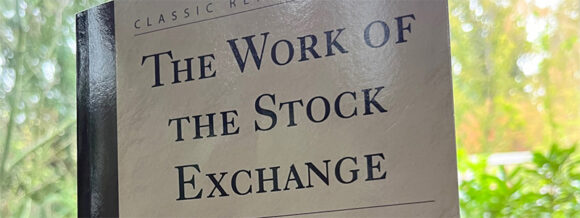
The story of the Pilgrims and the Mayflower taught to every American child in every American school is less than half of the actual story. Obviously there are a lot of day to day details left out, but the most striking of the omissions is the fact that the endeavor was a for-profit business.
The corporate side of this story is told in the first chapter of Americana: A 400-Year History of American Capitalism.
At some point in American elementary schools we are taught that the first colony was Jamestown. That those settlers died of disease, hunger, and in fighting the Indians. Minutes later we’re told the Pilgrims then settled in Plymouth, coming across on the Mayflower for the right of religious freedom. They too died in masses in the first few winters, but with the help of the local Indians, learned to plant corn and eventually flourished.
All that may be true, but it overlooks how these settlers paid for the ships, the supplies, and the years of re-supply ships.
The Virginia Company was incorporated in 1606, chartered by King James I. It was one of the very first “joint stock” companies in Europe, a structure that allowed investor to buy shares in an expectation of future dividends, but without the liability being a partner in a partnership. In other words, it was a new financial invention that let the rich risk their capital in exchange for gains, without having to risk any more than the price of a share.
Unfortunately for the investors, due to all the above-mentioned death, the business was a failure. But in 1614 when a group of English-refugee churchgoers (who historians would later call the Pilgrims) were looking to trade their labor in exchange for the potential of owning land, the Virginia company raised one last round of capital, hired the Mayflower, and risked a few more years to try and earn back all that had been lost.
It didn’t work.
The Mayflower didn’t land in Plymouth until September, and by then it was too late to fish, to make timber, or to trade with the locals, and thus the Mayflower went back empty rather than filled with value for the investors.
By the following year the Pilgrims had managed to fill the re-supply ship with goods, including quite a lot of beaver pelts, which they bought from the Indians with metal tools and other goods from England. However, the ship ran into French privateers on the way back to England and all that value was lost.
After that the shareholders refused to risk any more capital and Plymouth became a colony of freemen, no longer part of the soon-to-be defunct Virginia Company.
So in the end, the story we’re told in class is true, but it skips a key lesson from American history. One that reaffirms the adage of President Calvin Coolidge, that “The Business of America is Business“.














